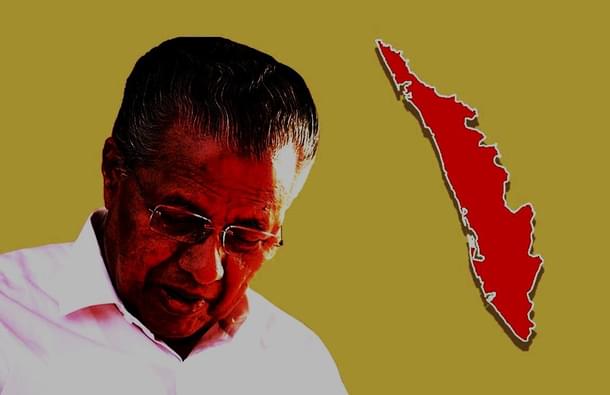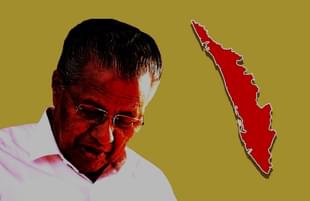Politics
Kerala Communist Government Caught In A Row Over E-Mobility Project, Selection Of Consultant; Swiss E-Bus Maker Questioned
M R Subramani
Jul 03, 2020, 08:59 PM | Updated 08:59 PM IST
Save & read from anywhere!
Bookmark stories for easy access on any device or the Swarajya app.


The Left Democratic Front (LDF) in Kerala led by the Communist Party of India-Marxist (CPM) is caught in another controversy again - the third in recent times over engaging Pricewaterhouse Coopers (PwC) and selecting a Swiss firm for its e-mobility projects.
As part of its e-mobility plans, the Kerala government will purchase 3,000 electric buses that will be manufactured through a joint venture between Kerala Automobiles Ltd and Switzerland-based bus manufacturer HESS AG. The project will cost between Rs 4,500 and Rs 6,000 crore.
The other part is to have at least 10 lakh electric vehicles on roads in the State by 2022.
The controversy stems from the Pinarayi Vijayan government's decision to select HESS to manufacture the buses and appoint global consultancy firm PwC to prepare a detailed project report on manufacturing electric vehicles in Kerala.
The order to appoint PwC to prepare the project report was issued on 7 November last year by Kerala Transport Secretary K R Jyothilal.
The appointment of PwC is seen as compromising the CPM stand against PwC. The Communist party had in September 2005 led a protest by the Left parties alleging that the consultancy firm was getting contracts through “unfair means”.
At that time, protesting the privatisation of the Delhi Jal Board, the Left parties wrote to then prime minister Manmohan Singh a letter, signed by among others CPM general secretary Prakash Karat, that the World Bank and PwC had played “a game” in the latter being awarded the consultant contract.
The World Bank financed the Delhi Jal Board project on the condition it would appoint one of its consultants for it. The Left Parties alleged that the World Bank used the conditions to threaten the Jal Board and Sheila Dixit government in the Union Territory to award the contract to PwC and the Centre should withdraw its application for funds to execute the project.
In the current situation, the Opposition parties led by the Congress have accused the Vijayan government of appointing PwC without floating any tender. The Kerala chief minister has, however, denied the charges saying all procedures had been followed in appointing the consultancy firm.
The controversy over HESS selection has resulted in leader of the Opposition in Kerala Assembly Ramesh Chennithala meeting the media at least thrice in the last five days questioning the process. He alleged that Kerala Government and HESS AG had signed an agreement to manufacture electric buses on 29 July last year, while the LDF has denied it.
The Opposition is up in arms mainly since Kerala’s Chief Secretary had in January 2018 objected to the selection of HESS, questioning how the selection was made and what procedures had been followed.
In addition, the State Finance Secretary objected to the agreement with HESS in August last year, saying that such a large number of buses cannot be procured without floating tenders.
The Finance Secretary also noted that Kerala was not in a position, financially, to buy 3,000 buses with each costing anywhere near Rs 1.5 crore.
Chief Minister’s Vijayan’s response has only left his opponents with more questions. He said that the Chief Secretary gave his opinion in January 2018 as it was sought by him and details were selectively leaked.
But the Chief Minister’s argument, Opposition leaders like Chennithala feel, is suspect since a steering committee to prepare a detailed plan for the State’s e-vehicle policy was set up only on 15 May 2018.
Vijayan said that Swiss firm HESS expressed interest to invest in Kerala on the basis of two notes put forward by the Transport Secretary on 30 November 2018 and 21 December 2018.
The Chief Secretary had made the observation against HESS at least 10 months before this. Chennithala has wondered if the LDF government had been in talks with HESS even before the Swiss company expressed its interest.
It was after the Transport Secretary notes that HESS officials flew to Kerala and held talks with officials. Promptly after the visit, the Kerala Automobiles Ltd invited expression of interest from other companies for a joint venture to produce electric buses.
According to the Chief Minister, a draft memorandum of understanding was submitted to the government for its consideration and this was sent to the Chief Secretary, leading to the questioning of the procedures.
This is where the Opposition questions the LDF Government wondering how could the Chief Minister seek the Chief Secretary’s opinion in January 2018 to a development that took place 10-11 months later.
Former chief minister and senior Congress leader Oommen Chandy has sought a clear response from the LDF government on the questions being raised over the deal with HESS.
Congress Lok Sabha member from Chalakudy in Kerala’s Thrissur district Benny Behanan has alleged that one of PwC directors Jaik Balakumar is associated with Exalogic Solutions, owned by Vijayan’s daughter.
This is the third controversy that the LDF government has been caught in since April. First, its agreement with US firm Sprinklr to store data of coronavirus patients came under scrutiny and the Kerala High Court stopped short of cancelling it.
In a facing-saving move, the Pinarayi Vijayan government ended the contract and told the Kerala High Court that all data and backups collected by the US firm would be deleted.
Then, the CPM government's selection of a startup company to develop an app for liquor sales in the State has also been questioned. Opposition parties have alleged that the selection of the firm was shrouded in mystery.
Chennithala questioned the decision to allow a private firm to develop the app when a public sector firm could have done it. The LDF government has also been charged with favouritism in selecting the app developer.
M.R. Subramani is Executive Editor, Swarajya. He tweets @mrsubramani




